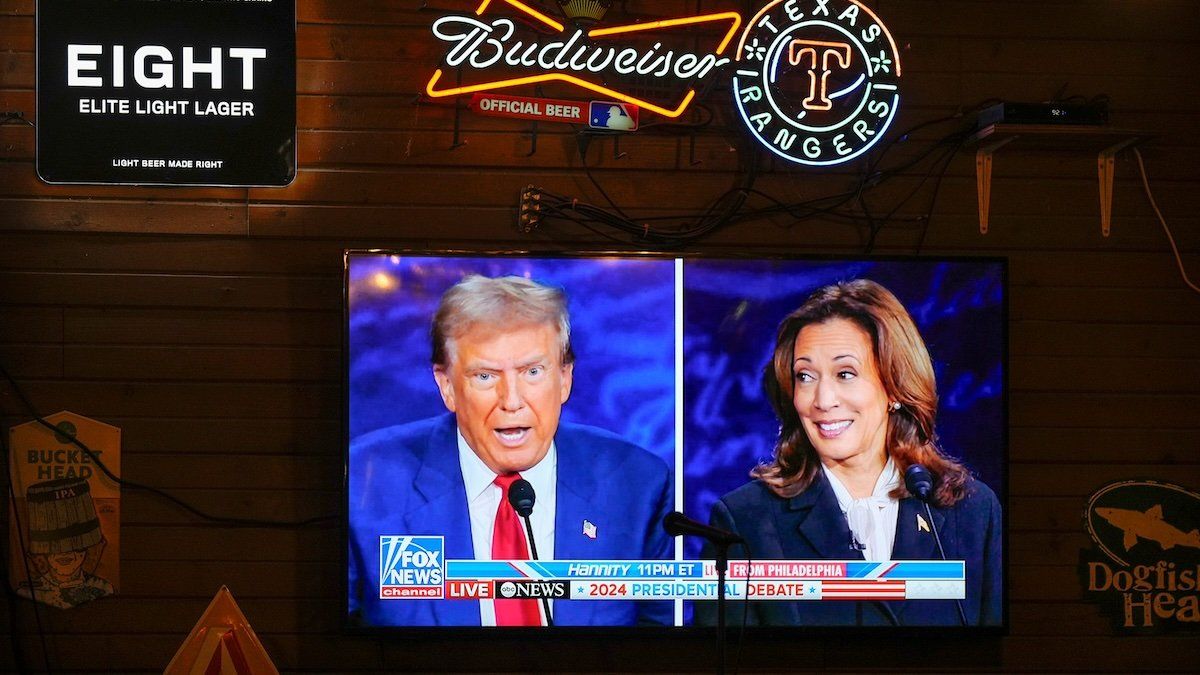We are now in the “debate over the debate” phase of the presidential campaign. Who actually won? Were the moderators biased? How will it impact votes in the swing states where this whole election hinges?
The general consensus is that Harris trounced Trump. Even on Fox News, chief political analyst Brit Hume admitted that “Trump had a bad night,” while Harris “kept her cool.”
The vice president successfully set up Trump with taunts about his crowd sizes, his deference to dictators, and his disrespect for the military.
Trump bit at the bait as if it were one of those delicious domestic pets in his unsubstantiated bloviation about immigrants eating cats and dogs in Ohio. He instantly reverted to his fulminating rally rants about doctors murdering babies after they are born (false) or how he dealt very strongly with a guy named Abdul, who he wrongly claimed was the head of the Taliban. (The name of the leader is actually Hibatullah.)
Still, it was the outrageous story about pet-eating Haitian immigrants in Springfield, Ohio, that has become the meme of choice. “They’re eating the dogs. They’re eating the cats,” Trump claimed. “They’re eating the pets of the people that live there.”
Immediately, ABC moderator David Muir corrected the former president, citing Springfield’s city manager, Bryan Heck, who wrote that there have been “no credible reports or specific claims of pets being harmed, injured or abused by individuals within the immigrant community.”
Alas, credible reports have no credibility for the credulous. The Trump campaign has run with this story. His running mate, JD Vance,has encouraged people to spread the pet-eating lie even though he admitted on X that it might be false. “It’s possible, of course,” he wrote, “that all of these rumors will turn out to be false.”
This is a remarkable admission by a major party candidate and merits a moment of reflection, if such moments still exist in the shyte-flooded zone of information. Vance is doing something different than Trump and other politicians. Trump tells a lie but pretends it is the truth. “I won the last election,” for example. That now seems old-fashioned. But listen to how Vance defends promoting the fake story. “If we have to meme about it to get the media to care,” Vance said, “we’re going to keep doing it.”
It is not about a moral position on truth, or a leader’s responsibility to avoid divisive rhetoric. It’s merely a cost-benefit analysis in the campaign, and it works. So, as he says, they will keep doing it. Spreading disinformation is now not just normalized, it is actively encouraged.
In a similar vein, in the days since the debate, Trump has blamed the moderators for his performance, claimed the event was “rigged” against him, and suggested that ABC should lose its license. To be fair, he was fact-checked four times while Harris was not fact-checked at all, but he also got a full five minutes more speaking time than she did, which is a massive advantage in a debate.
And just like the Springfield stories, the notion that the debate was a “three on one” sham has taken hold as gospel truth in Trumpville. Why is that? Part of the reason is that the groundwork was laid beforehand, by bots and other online misinfo merchants.
To show how, GZERO partnered with Cyabra, a company that uses AI algorithms to track disinformation online. We looked specifically at trust in the presidential debate, analyzing more than 1,500 online profiles that discussed ABC News moderator David Muir in the run-up to the debate.
At least 15% of these profiles were identified as fake … making it difficult for users to distinguish between authentic andinauthentic conversations. And the fake profiles “specifically spread negative content about Muir, claiming his political bias was in favor of Kamala Harris, suggesting Muir would undermine Trump during the debate.”
Some of the fake profiles even “pushed a false narrative that ABC provided Harris with debate questions but withheld them from Trump.” That is to say: Before the debate even started, people were encouraged to believe that it was rigged against Trump.
As Mark Twain supposedly once said, “A lie can travel halfway around the world while the truth is still putting on its shoes.”
But in today’s world, there isn’t even time for the truth to get out of bed, let alone put on footwear. The mere fact that there is more outrage over a journalist fact-checking a lie than about a politician actually telling a lie is perhaps the most revealing aspect of the normalized world of disinformation. The Trump campaign and its supporters know this, and they are feasting on the possibilities like so many, er, dogs and cats.
